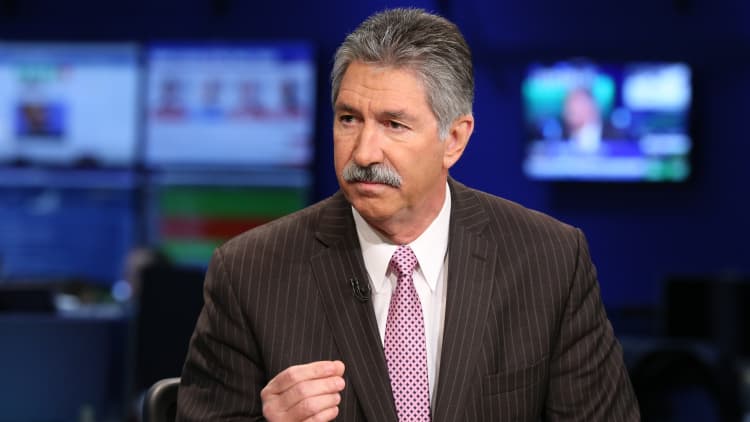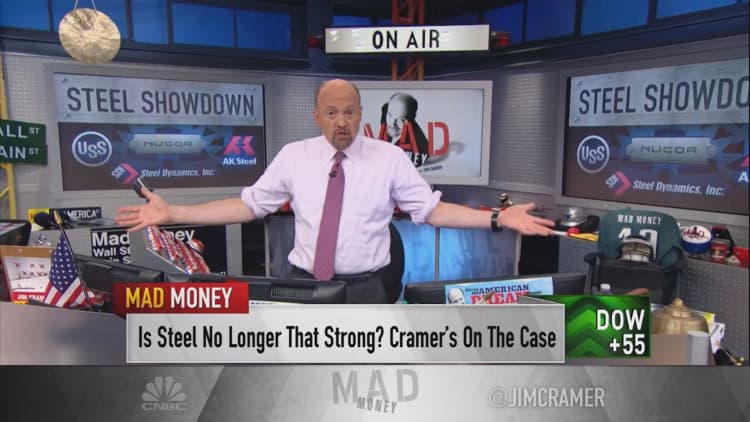
U.S. Steel CEO Mario Longhi is stepping down from the company's top job, effective immediately. David Burritt, who most recently served as president and chief operating officer of the Fortune 250 integrated steel company, will succeed Longhi.
Shares of U.S. Steel fell about 1 percent in after-hours trading following the announcement.
The board of directors elected Burritt to the role of president and chief executive on Monday.
Prior to joining U.S. Steel, Burritt served the chief financial officer at Caterpillar, where he worked for 32 years until he retired in 2010. He served as executive vice president and chief finance officer after joining U.S. Steel and was promoted to COO earlier this year.
Burritt takes over at a challenging time for the company. Last month, U.S. Steel reported disappointing first-quarter earnings that sent the stock plunging nearly $8 to under $23 a share on the day it released results. It has fallen nearly 33 percent since April 25.

Cowen and Company downgraded shares of U.S. Steel from outperform to market perform, citing a lack of visibility on earnings in light of the company's multiyear turnaround program.
"We see defending the stock at this point as impossible given the lack of information regarding the return on investment and the wide variability to earnings based on our sensitivity analysis," Cowen analysts wrote. "We were unable to gain confidence in the duration or shape of the revitalization, despite our conversations and analysis."
Following its latest earning report, CNBC's Jim Cramer named U.S. Steel the weakest player among three of its peers, including AK Steel, Nucor and Steel Dynamics. Steel companies have struggled in recent years as demand in emerging markets waned and cheap supplies from China flooded international markets.
Longhi will remain on the board of directors and assist in the leadership transition until his retirement on June 30.
"When I came to the company, I envisioned a five-year tenure, which I have completed," Longhi said in a statement. "I am proud of the progress we have made, which solely resides on the people of this company. U.S. Steel employees dug in, tackled every challenge and never stopped looking for ways to improve everything they could control."
Longhi has led the company since 2013, when U.S. Steel embarked on a turnaround plan dubbed "The Carnegie Way" following a string of disappointing quarterly financial results that year.
"Mario played a key role in driving the company's transformation, including the successful implementation of The Carnegie Way," Chairman David Sutherland said, in a statement.
"His impact was felt across our company and the steel industry through his efforts in Washington, D.C., to combat unfair trade and create a level playing field. We thank him for his dedication to U.S. Steel."
Longhi has been a vocal critic of nations that engage in so-called dumping, or the practice of flooding the market with artificially cheap products. He is one of about two dozen business leaders tapped to partake in President Donald Trump's Manufacturing Jobs Initiative. U.S. Steel told CNBC it is uncertain whether Burritt will take his place on that panel — the decision is up to the White House.
Trump has proposed requiring oil and gas pipeline companies to use American-made steel and pipes in their projects. Longhi has said that while the country's steelmakers are not currently major players in the space, they are up to the task of increasing production to meet demand within a few years.
CNBC's Lori Ann LaRocco contributed to this report.


